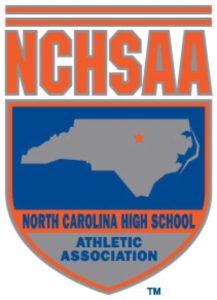
Some lawmakers want more control of things in Chapel Hill
By CHRIS HOBBS
HobbsDailyReport.com
RALEIGH – Another state bill that would further alter the landscape of the North Carolina High School Athletic Association (NCHSAA) is working its way through the state legislature.
State Bill 636 — filed April 5 and labeled School Athletic Transparency – is in the Senate and next headed to the rules committee.
If 636 passes there, it will go to the Senate for a vote and, if passed, then go to the House of Representatives. If the House OKs the bill, it goes to Gov. Roy Cooper (D) for a final decision.
The bill basically proposes some changes in how the NCHSAA’s current MOU (memorandum of understanding) with the State Board of Education would work.
 The MOU in place is to last up to four years.
The MOU in place is to last up to four years.
A key change in 636 would have the State Superintendent of Education rather than the State Board of Education providing oversight. The superintendent would select a non-profit organization(s) to oversee high school athletics in the state.
The bill has been amended with these key drops from the original draft:
- A requirement that the NCHSAA limit its number of classifications to four.
- A requirement that charter schools be placed in a higher classification than their actual enrollment would usually place them.
While another bill is reviewing transgender participation in prep sports, this bill changed language and instructs the State Board of Education to address “biological participation”.
The change in limiting classifications to four removes a concern if the bill would have passed with that in place.
The NCHSAA, after a vote of its membership passed, announced it will move from four classes to at least seven when the 2025-2026 school year begins.
In the next statewide realignment, though, the NCHSAA will likely – at the instruction of the state legislature – be placing schools on only one factor — average daily membership (ADM).
If 636 passes, the NCHSAA will be a shell of what it has been and have even fewer things that it can currently address.
The earlier bill that generated the MOU wiped away the association’s ability to make eligibility rulings, fine schools for rule violations or gain any money from the schools from regular season games.
The primary sponsors of 636 are Republican senators Vickie Sawyer (District 37, Iredell and Mecklenburg), Todd Johnson (District 35, Cabarrus and Union) and Tom McInnis (District 21, Cumberland, Moore).
McInnis was a significant player in the push to regulate the NCHSAA.
The state legislature initiated an investigation of the organization after finding in its look-see that the NCHSAA had more than $40 million in assets, approximately $26 million in The Endowment Fund.
McInnis has said he was displeased with how Tucker and the NCHSAA handled a school in his district, Anson County, after its players were involved in a fight with Richmond County in a 2019 varsity football game. That led to the Bearcats, by rule (too many ejections for fighting, a rule no longer in place), being eliminated from playoff eligibility.
When the NCHSAA informed Anson County officials, they chose not to make the decision public. Many weeks later, when the playoff brackets were released, Anson County was not in the bracket.
There was no press release or acknowledgement of the rule being enforced or the penalty already being applied, as the NCHSAA policy (it is not a rule or board of directors’ directive) is to have no comment on application of its rules or to confirm a school is subject to a rule enforcement or which rule or what the stated penalty is.
Media are directed by the NCHSAA that any information about a rule or violation should come from the school(s).
As a public school, information about school teams — other than privacy matters like names, etc. — by state law must be released (to anyone who inquires).
There’s currently another bill in the state legislature aimed at open meetings laws and clarifying transparency issues as they relate to how the NCHSAA handles communications with media and the general public.
Tucker has told HobbsDailyReport.com several times the policy is consistent with how the NCHSAA has handled information on schools disciplined and she will not consider a change without being instructed to do so by the NCHSAA board of directors.
State officials told HobbsDailyReport.com in an interview about the current MOU that when information about a school’s athletic program is desired and the NCHSAA won’t provide it, all questions should then be directed to a school system (which must, by law, provide information that does not violate an individual’s privacy).
For example, if school A has a specific number of student-athletes involved in something that would cause the team to miss the state playoffs, the school system must answer generic questions like how many players were involved, what rule was violated and what, if any, NCHSAA penalty is involved plus any other general generic questions that do not provide information that would identify any student-athlete.
REVIEW BILL 636: https://www.ncleg.gov/BillLookUp/2023/s636
HIGH SCHOOL OT COVERAGE:
BILL WANTS NCHSAA SUBJECT TO OPEN MEETINGS LAWS: https://hobbsdailyreport.com/north-carolina-high-school-athletic-association/open-meetings-law-new-bill-would-make-nchsaa-subject-to-them/
NCHSAA SIGNS MOU: https://hobbsdailyreport.com/north-carolina-high-school-athletic-association/nchsaa-signs-agreement-will-continue-to-guide-high-school-sports-in-the-state/

